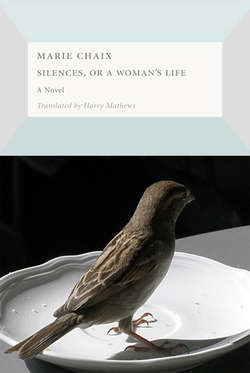Читать книгу Silences, or a Woman's Life - Marie Chaix - Страница 10
На сайте Литреса книга снята с продажи.
ОглавлениеAlice was born to be a queen; then fate made a mistake. Her luminous eyes, her angelic smile would have given heart to a whole downcast nation. Her soft broad shoulders, straight and proud, were made to display, heedless of their weight, ermine, velvet, and millennial gems, and the smoothness of her brow to be caressed by strands of dangling, milky pearls.
In accounts of her childhood and dreary youth, everything recalled the sad beginnings of tales whose raggedy heroine ends up a princess. Year after year, I waited for this miracle that never happened. Why had no fairy alleviated her ordeals and set a crown on her head instead of gray hairs? I used to think there was no limit to her patience. How could she preserve such a smile and such confidence?
In a desk drawer she kept a box of which she was particularly fond. It contained an assortment of snapshots, letters, old postcards, sky-blue pendants of the Virgin Mary, mother-of-pearl buttons, foreign coins. The gilt box was octagonal, with a surface that felt uneven to the touch, overlaid as it was with a fine lacy relief of dull gold. At the center of the lid was an oval medallion that reproduced in pastel colors the delicate smiling face of Queen Astrid. The sight of this portrait left me spellbound—the two women were so alike, it might have been her own.
Astrid of Belgium was young, beautiful, and much loved. She would, more or less, be your age. A small, finely chased diadem brightened the undulations of her hair; her white neck emerged from an impeccable fur collar. Her death was a “tragic” one, wept over by every newspaper in Europe: a car accident that orphaned two children and left a king in despair. In the depths of the box, clipped from a magazine article, were photographs of the royal family and, next to them, the shattered car.
Alice used to tell the melancholy tale of Astrid, whom she loved like a sister and who, she said, deserved a kinder fate. As I listened to her I could sense how she identified herself with the dead queen, whose memory was laden with her own regrets and all the sorrows still ahead of her. It was as if the only thing that could resemble her was an image of suffering; as if, to her life, only a life steeped in doom could be declared a parallel.
